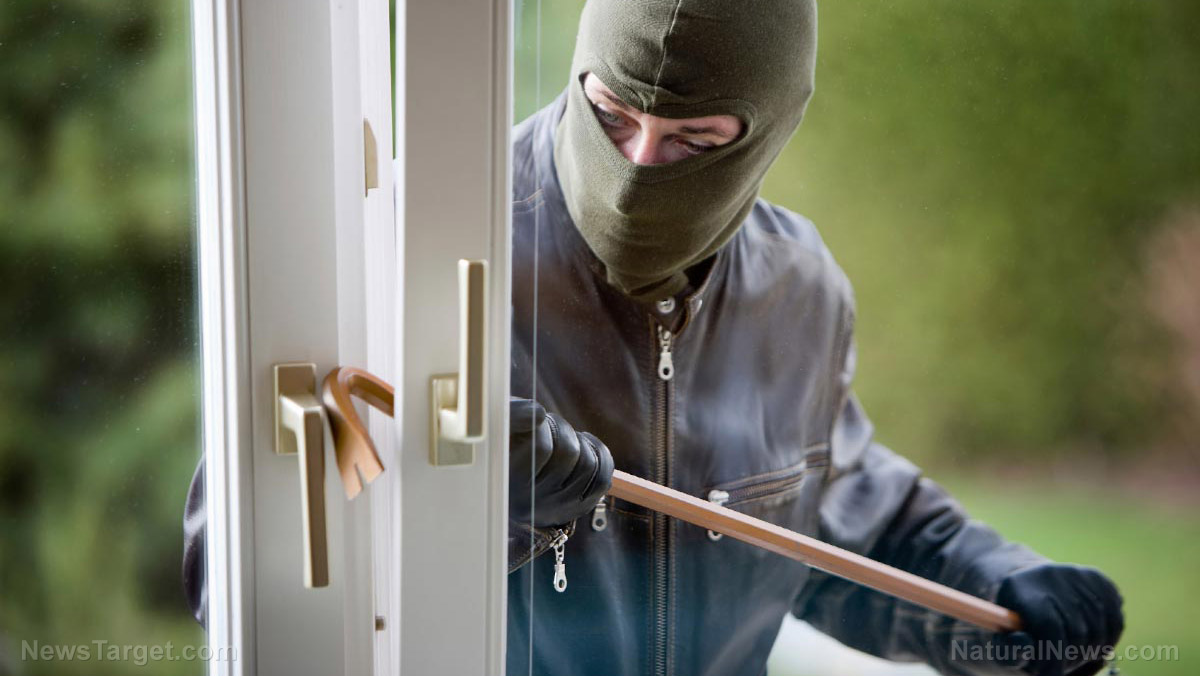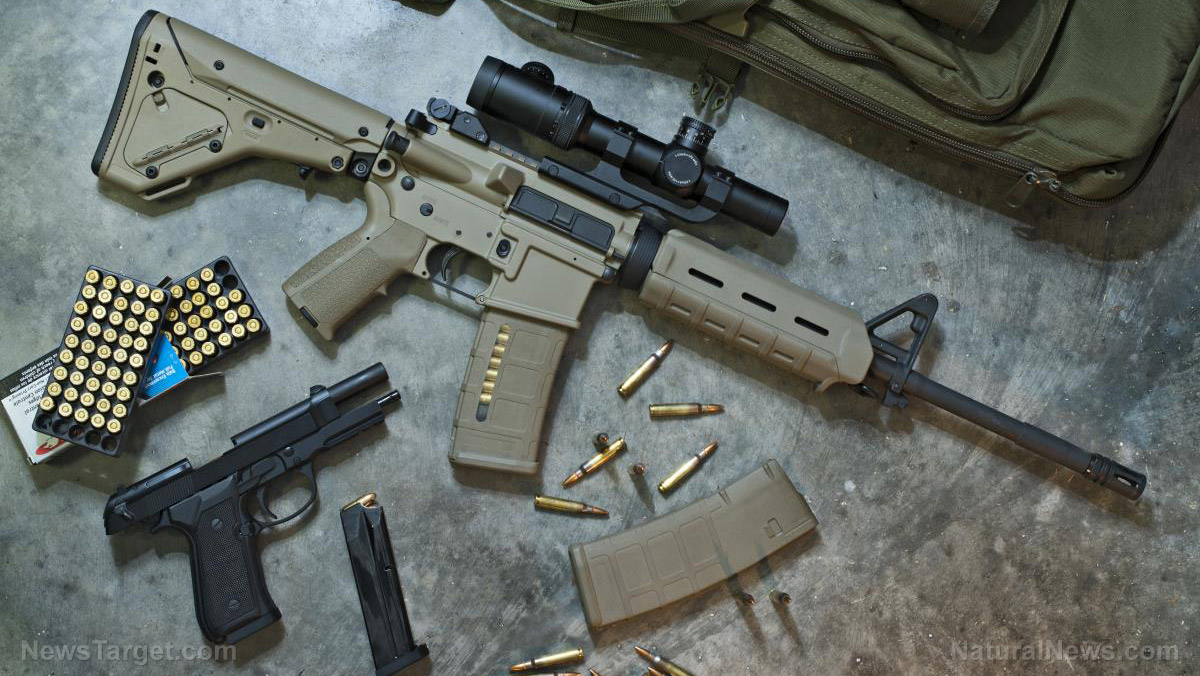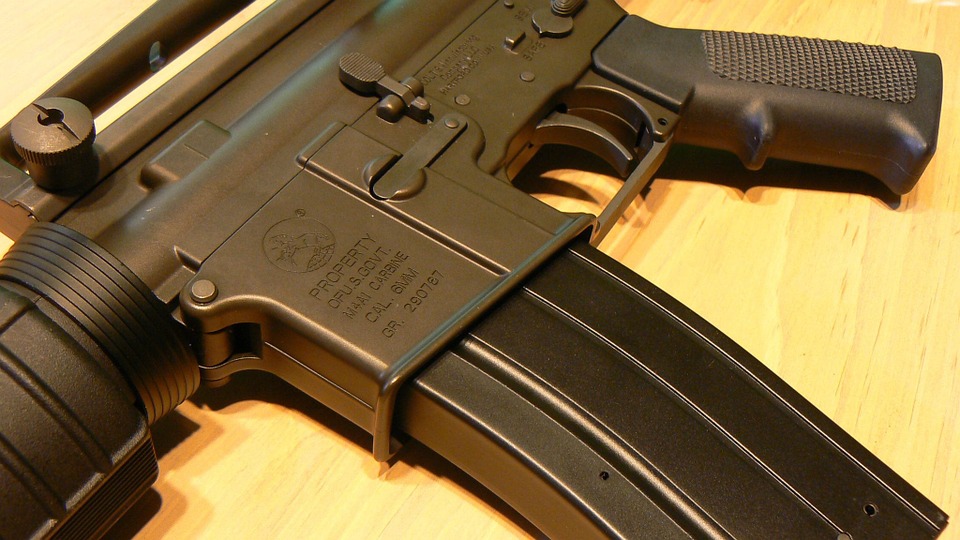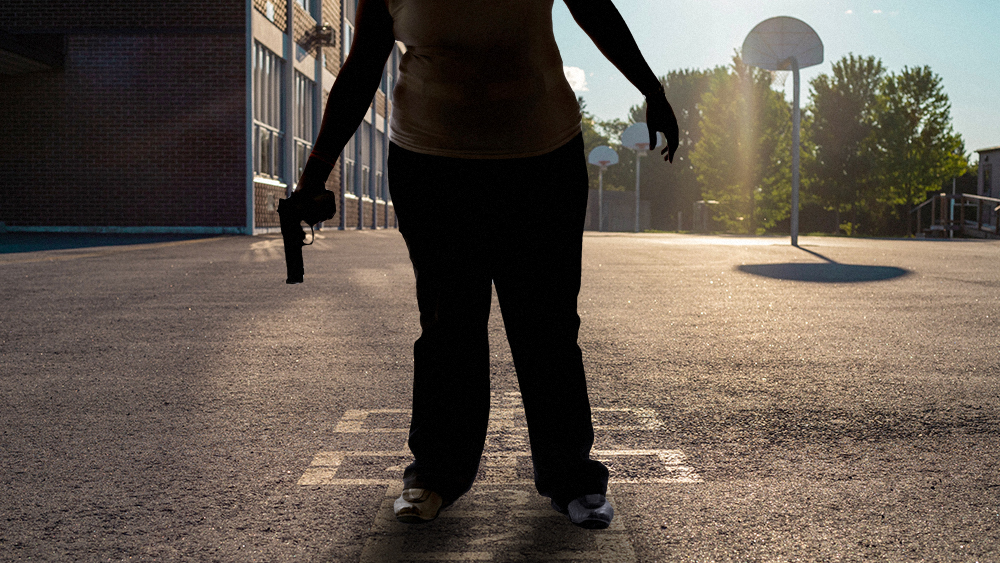Professional advice: Ex-burglar gives TIPS on how to protect your home from getting robbed
05/24/2023 / By Olivia Cook

Here are some clever tips and tricks you can use to protect your home from getting robbed and burgled as revealed by a retired/ex-burglar.
Install laminated windows
Laminated windows are designed to shatter, but not break apart – thanks to a layer of plastic that holds the shards together. A burglar is more likely to leave rather than risk more time loudly smashing away at it. Laminated windows are about twice as expensive as standard, double-glazed windows. But before you grab your wallet, check your windows for a label in the corner with text saying “laminated.”
Canine security
Dogs don’t always make the best security measure as most of them are quite friendly and even uneasy ones could be won over with a couple of rawhide strips before being locked into another room for convenience. If your dog isn’t specifically trained to be a guard dog, your best bet is to get a smaller breed. These tend to bark a lot more, drawing attention. (Related: 9 secrets from a veteran cop to protect your home from burglars.)
Careful placement
Make sure to regularly dust any secret hiding spots to keep any unwelcome guests guessing as to where you hide your rainy-day fund.
After you clean up, be sure to put any brooms and mops away from your front door. Thieves sometimes use brooms they find lying around to prop against the front door during burglaries as a sort of makeshift alarm system. If anyone opens the door, the broom noisily falls, altering them and giving them a chance to escape.
Always ensure calendars are out of sight of any windows as any thief with a pair of binoculars can look to see when you’re planning to be out of the house. The same applies to ensuring your mailbox is emptied regularly. Letting your mail pile up may give off the impression that you’re away on vacation making a break-in more appealing to any burglars who spot it.
Thieves can fish keys and valuables through letterboxes on your door. Ensuring your valuables are nowhere in sight is essential. Better yet, you can install a letterbox cage to prevent any pole-wielding burglars from having their way.
The most common targets of burglars are the quick and easy items, like jewelry, phones, passports, wallets and firearms – all of which can be shoved into a jacket and easily concealed. So leave nothing valuable in sight and keep your hiding spots dusted and subtle.
Try not to leave your children’s bikes or toys visible outside your home. For a burglar, seeing you have kids in your home means you likely have more electronics, like consoles, tablets and laptops that are easy to sell and hard to trace.
Neighborly vigilance
While the privacy seems nice, make sure that even if you have fences or bushes, your neighbors can see your entry doors. If you’re not at home, your neighbors are your best line of defense against intruders. Have a good enough relationship with your neighbors to make them feel comfortable to call you if they see something suspicious.
A bit of neighborly vigilance could make a big difference, even if your neighbors are a little annoying.
Consider leaving the drapes open instead of closed. Open drapes allow your neighbors to see if someone’s walking around inside while you’re out of the house.
Secure your door
For defense against home invasions, the most useful installation to make is called a Strike Plate, which you can pick up in most stores for less than $5. The Strike Plate is a small sheet of metal bolted into the door frame, securing the deadbolt in place. That way, if someone tries to brute-force the door, the stress is spread throughout the metal plate instead of just cracking the deadbolt straight through the wooden door frame.
Signs of security
If you decide to invest in security cameras for your house, make sure to place them in places that are most likely to give you I.D.-quality videos or photos. Place the camera at eye level. Install cameras in places that will provide the clearest images, and will hopefully give the police enough information to help you recover your stolen goods before they’re sold off.
But while security systems can provide a sense of comfort, they won’t always be enough to stop a thief who is committed to the job. If a thief sees that you’ve invested in a security system, that sometimes sends the message that there’s something valuable and worth protecting inside. The best approach seems to be being smart, subtle and accurate, but not too flashy.
Secure your garage
Many homeowners park in their driveway but keep a garage door opener fob in their car for convenient access to the garage. Cars are easier to break into compared to a house and if a burglar gets access to that fob, your house becomes completely accessible via the garage.
Even without an electric fob, a resourceful thief can slip a wire over or under a garage door and hook onto the manual disengage lever, triggering it to open. After that, they can simply lift the door and have free access to the home. It’s essential to lock the door connecting your garage to your house every night.
Break your routine
You need to shake up your routine. If possible, occasionally change up the times you leave for and return from work. And if you use timers to turn on lights in your house during the night or day, randomize the schedule so it looks more like it’s being done by actual people.
Visit SelfDefense.news for more articles like this.
Watch this video to learn home defense tips and how to prepare for a home invasion.
This channel is from the Daily Videos channel on Brighteon.com.
More related stories:
Stay safe at home this summer, when most home invasions and break-ins occur.
Home defense plays an important role in survival after SHTF.
Sources include:
Submit a correction >>
Tagged Under:
break in, burglary, guard dog, Home invasion, homesteading, laminated windows, off grid, preparedness, prepper, prepping, security camera, security system, self-defense, Strike Plate, survival, thief, tips
This article may contain statements that reflect the opinion of the author
RECENT NEWS & ARTICLES
COPYRIGHT © 2018 SELFDEFENSE.NEWS
All content posted on this site is protected under Free Speech. SelfDefense.news is not responsible for content written by contributing authors. The information on this site is provided for educational and entertainment purposes only. It is not intended as a substitute for professional advice of any kind. SelfDefense.news assumes no responsibility for the use or misuse of this material. All trademarks, registered trademarks and service marks mentioned on this site are the property of their respective owners.




















